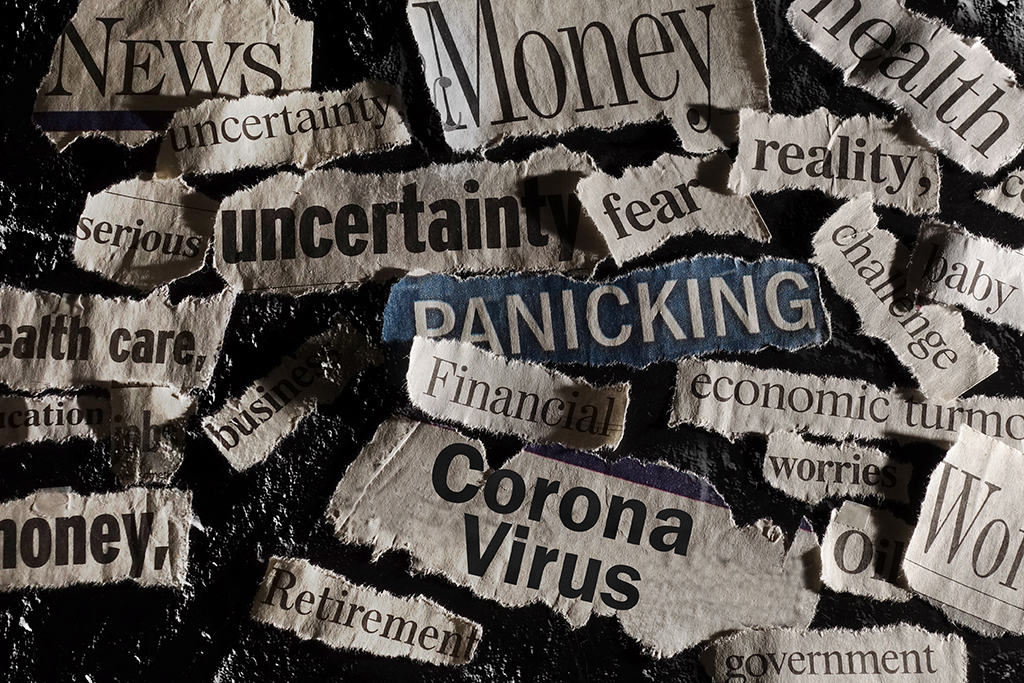As both a medical pandemic and a scary idea inside our heads, COVID-19 is unprecedented in our lifetime.
It threatens the physical health of millions, and preys on the mental health of billions more.
The illness upsets the mental equilibrium of different people in different ways.
We may all be in the same boat, as we are constantly told, but our reaction to being stuck on that vessel varies with the individual and their circumstances.
Psychological health is one of the components of our overall health, says Vancouver psychologist Dr. Joti Samra.
Samra says COVID-19 has already had a major impact on Canadians’ mental health.
The incidence of depression – with symptoms like withdrawal and irritation – has doubled, anxiety – excitability, worry – has quadrupled, and alcohol consumption has increased by one-quarter.
“COVID-19 has hit working women particularly hard,” said Samra. “Many of them are juggling work, childcare and elder care on top of that. They feel like they’re under massive stress, and that they’re not getting a break.”
BC Construction Safety Alliance (BCCSA) regional safety advisor Art Reynolds says COVID-19 puts stress differently on employers and employees.
“Employers’ profit margins are already slim, and the additional costs of working within such workplace restrictions as on-site sanitation, cleaning tools and social distancing, puts them under more financial pressure,” said Reynolds.
Many questions are going through their heads: How much more will it cost to do business in the future? Once this is all over will we be expected to continue to operate this way? Will we have enough labour?
Workers have other things on their mind: Will my hours get cut? What if I get sick? What if my family gets sick?
Workers at remote camps have additional concerns.
“Although there are few cases of COVID-19 in northern BC, there is the perception that people in remote work camps are more at risk of getting sick than workers in the city and who come home every day after work,” said Reynolds. “Everybody at home is worried about the son or son-in-law and if he’ll bring the disease back with him when he returns from the work camp for a visit.”
BCCSA director of health and safety services Erin Linde says that when COVID-19 first appeared in Canada, it hit small- and medium-sized companies especially hard.
“There was a lot of stress from not knowing what to do,” Linde said. “Some larger companies had had SARS [Severe Acute Respiratory Syndrome] experience and could use that to help them prepare.”
Linde says emergencies, such as COVID-19, affect every individual differently.
“Working from home with family and, especially, children around you is stressful,” she said. “That’s especially true if some of your children have special needs or if your partner has a compromised immune system. That means it’s additionally important for you not to get sick.
COVID-19 is also affecting construction workers who are already burdened with mental health struggles.
Construction Industry Rehabilitation Plan (CIRP) provides mental health and substance use services to workers in the organized construction industry.
CIRP executive director Vicky Waldron says COVID-19 has caused considerable anxiety to its clients.
“They’re worried about getting sick, about their finances and about things in general,” Waldon said. “We’ve seen increased substance use and more cases of suicidal thoughts. Fortunately, they’re just expressing thoughts, not actively planning to kill themselves.”
Scott Construction Group marketing manager Donna Grant says it can sometimes be difficult for employers to get straight answers from employees about the state of their mental health.
“Nobody wants to be seen to be weak or letting the team down,” said Grant.
“If everybody you ask says they’re fine, then maybe they’re not being entirely honest with you.”
Grant suggests employers quiz a cross-section of their employees to find out what’s on their minds, instead of asking individuals directly.
“Ask them an indirect question, such as how they think everybody in the company is doing,” Grant said. “You can use SurveyMonkey [a free online survey tool], which can send out up to 100 questionnaires for free, and which can be answered anonymously. Keep the questionnaires short, no more than three questions.”
BCCSA regional safety advisor Amandeep Beesla says it is only recently that people in the construction industry been taking mental health seriously.
“Everybody is talking about COVID-19 now,” said Beesla. “They’re going through a grieving process, because their old way of life has died and gone and they’re worried about the future, just like if someone close to you has died.
“We’re transitioning to a new normal and it will take time for everyone to make the adjustment. There is a mental struggle going on inside all of us.”



I couldn’t agree with everyone in this article more! In the U.S. the construction industry has the highest rate of suicide among workers than any other industry. I would imagine you could say the same thing for Canada.
We need keep our essential workers mentally healthy!